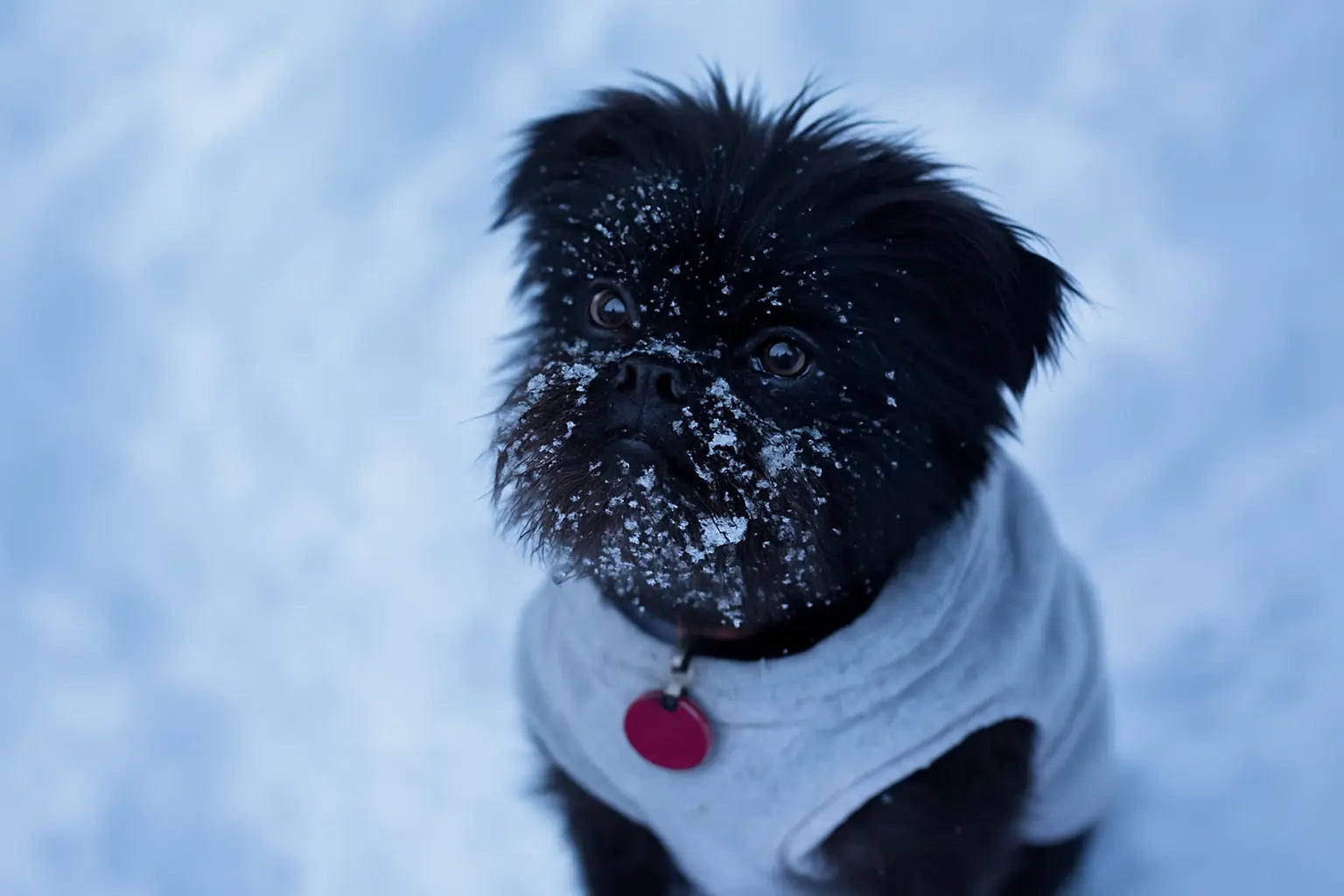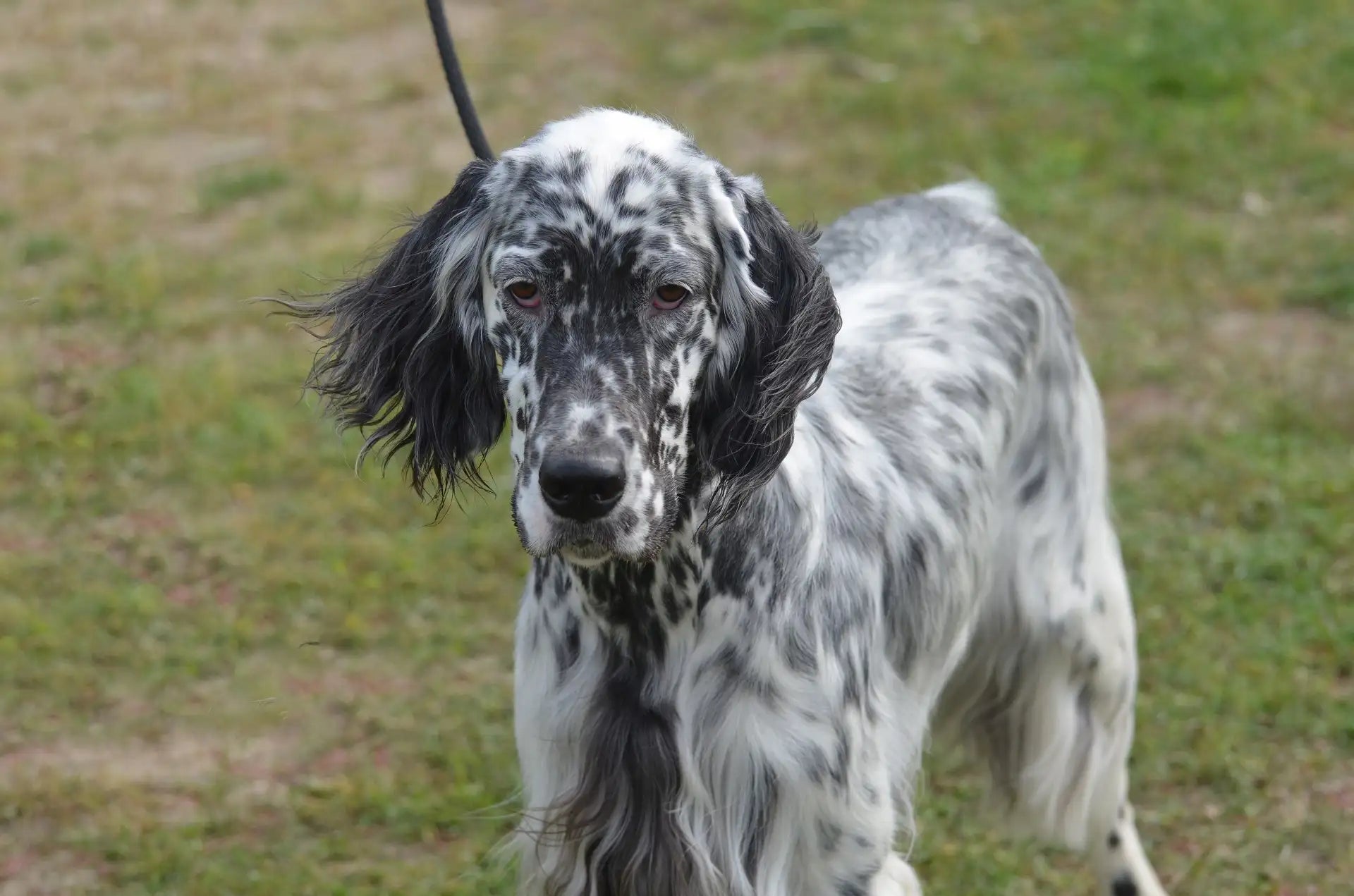
Affenpinscher Dog Breed: Temperament, History, Grooming & Care Guide
Loyal, bold, and brimming with personality, the Affenpinscher may be small in size but is big in charm. Often called the “monkey dog” for its expressive face and comedic personality, this little companion dog is perfect for experienced owners seeking a spunky sidekick.
Quick Facts Overview
|
Trait |
Details |
|
Size Category |
Toy/Small |
|
Height & Weight |
Height: 23–30 cm; Weight: 3–6 kg |
|
Coat Type & Colours |
Wiry, dense coat; black, grey, silver, red, black and tan |
|
Energy Level |
Moderate |
|
Origin |
Germany |
|
Grooming Needs |
Moderate |
|
Temperament |
Confident, curious, alert, affectionate |
|
Trainability |
Moderate |
|
Compatibility |
Best with adults or families with older children |
|
Lifespan |
12–15 years |
Breed Origins and History
-
Originated in Germany in the 17th century
-
Originally bred for ratting and vermin control in stables
-
Later became popular as a lapdog for nobility
-
Known for its terrier-like spunk and loyalty
-
Recognised by major kennel clubs in the early 1900s
The Affenpinscher has long been admired for its personality as much as its looks. Although it started as a fearless rodent hunter, it quickly captured hearts as a house companion.
Their comedic antics, combined with their intelligent gaze, make them a joy to have in the home. While small, they’re true terriers at heart—alert, independent, and always up for adventure.
Personality and Temperament
Key Traits:
-
Fearless and spunky
-
Loyal to one or two key people
-
Playful and entertaining
-
May be wary of strangers or rough handling
Affenpinschers are full of character. They're bold, curious, and often act much bigger than they really are. These dogs form strong bonds with their chosen humans and can be quite protective.
Their big-dog-in-a-small-body personality makes them wonderful watchdogs. That said, they’re not ideal for very young children, as they dislike being mishandled.
Affens love spending time near their family, following them from room to room and keeping an eye on everything.
Trainability and Intelligence
Training Traits:
|
Trait |
Rating |
|
Obedience |
6/10 |
|
Focus |
7/10 |
|
Responsiveness |
7/10 |
|
Social Learning |
6/10 |
Training an Affenpinscher can be rewarding, though it requires patience. These dogs are intelligent but have a mischievous streak.
They’re easily bored with repetition, so keeping sessions short and engaging is key. Early socialisation helps reduce any territorial tendencies or reactivity.
Positive reinforcement works well, especially when paired with their favourite treats or games.
Recommended Gear:
Exercise and Activity Requirements
Daily Requirements:
-
30–45 minutes of light to moderate exercise
-
Indoor playtime and short outdoor walks
-
Mental games like puzzle toys or training drills
While not high-energy, Affens do need daily movement to stay happy and healthy. They’re agile and enjoy games like chase or tug.
Puzzle toys and trick training help satisfy their mental needs. Due to their size, they’re well-suited to apartment life but still need structured activity every day.
Recommended Gear:
Physical Characteristics
-
Small, compact frame
-
Prominent eyes and short muzzle
-
Monkey-like facial expression
-
Dense, wiry coat with a tousled appearance
The Affenpinscher’s look is unmistakable. Their shaggy coat and confident stance give them an almost comedic charisma. Regular grooming keeps their facial features visible and their wiry coat in good shape.
Recommended Gear by Size:
Living Environment Suitability
Ideal Conditions:
-
Apartment-friendly
-
Quiet homes without rough play or loud chaos
-
Close companionship with their humans
These little dogs are ideal for apartments or smaller homes. They’re happiest when they can shadow their owner and feel included in daily life.
They don’t tolerate isolation well, so they suit work-from-home owners or retirees. Be mindful that their alertness can lead to barking if not managed early.
Recommended Gear:
Grooming and Maintenance
Grooming Checklist:
-
Brush 2–3 times per week
-
Trim facial hair to avoid eye irritation
-
Monthly baths with dog-safe shampoo
-
Clean ears, eyes, and trim nails regularly
Affenpinschers don’t shed much, but their wiry coat needs regular maintenance. Pay special attention to the hair around their eyes and mouth, which can trap debris.
Hand-stripping or light trimming helps maintain the coat’s texture. Grooming also serves as bonding time—something this clingy breed absolutely loves.
Recommended Grooming Gear:
Common Health Issues
Breed-Specific Concerns:
-
Patellar luxation
-
Heart murmurs
-
Dental disease
-
Eye issues (e.g. cataracts)
Due to their small size, Affenpinschers can be prone to joint and dental problems. Regular vet check-ups and maintaining a healthy weight are important. Brushing their teeth and choosing joint-friendly beds helps support long-term wellbeing.
Recommended Health Support Gear:
Diet and Feeding Guidelines
Feeding Schedule:
-
Puppies: 3 small meals daily
-
Adults: 2 meals a day
-
Small-breed formulas that support dental and joint health
These tiny dogs don’t eat much, but their food quality matters. Choose a diet that supports dental care and includes healthy fats for skin and coat health. Monitor treats to avoid weight gain and keep feeding consistent day-to-day.
Recommended Feeding Gear:
Compatibility with People and Other Pets
Compatibility Scale:
-
Children: ★★★☆☆ (best with older, gentle children)
-
Other Dogs: ★★★★☆
-
Strangers: ★★★☆☆
Affens are loving but selective. They thrive in homes with calm energy and minimal chaos. With proper socialisation, they coexist well with other small dogs. Due to their size, always supervise interactions with larger pets or young kids.
Recommended Social Gear:
Behavioural Issues and Management
Common Issues:
-
Separation anxiety
-
Territorial barking
-
Stubbornness in training
Solutions:
-
Practice calm departures and arrivals
-
Desensitise to triggers like doorbells or new guests
-
Use positive reinforcement and structure
Recommended Gear:
Essential Gear for Affenpinschers
Walking & Outdoor:
Style & ID:
Training:
Travel & Safety:
Climate & Seasonal:
Personalisation:
FAQs: Affenpinscher Dog Breed
1. Are Affenpinschers good family dogs?
Affenpinschers can be good family dogs, especially in households with adults or older children. They are affectionate, loyal, and often have a comical personality. However, due to their small size and independent nature, they may not tolerate rough handling from young kids.
2. Are Affenpinschers aggressive?
Affenpinschers are not generally aggressive, but they can be bold and territorial. They may act defensively if provoked or if they feel their space is being invaded. Early socialisation and consistent training help minimise unwanted behaviours.
3. Are Affenpinschers easy to train?
They are intelligent but independent, which means training can take patience. While they can learn quickly, Affenpinschers often like to do things their own way. Short, consistent training sessions with positive reinforcement work best.
4. Do Affenpinschers bark a lot?
Yes, Affenpinschers tend to be vocal, especially when alerting to sounds or strangers. They make good watchdogs but may bark more than desired without early training and routine.
5. Are Affenpinschers cuddly?
Some Affenpinschers enjoy cuddling, especially with their favourite person, but they are not as clingy as lap dogs. They often prefer to be near you rather than constantly in your lap. Their affection tends to come with a bit of independence.
6. Do Affenpinschers have health problems?
They are generally healthy, but like many small breeds, they can be prone to issues such as dental disease, luxating patellas (knee problems), and breathing difficulties due to their short muzzle. Regular checkups and good breeding help reduce risks.
7. Are Affenpinschers hypoallergenic?
Affenpinschers are often described as hypoallergenic due to their low-shedding coats, but no dog is completely hypoallergenic. They produce less dander than many breeds, making them more suitable for some allergy sufferers.
8. Can Affenpinschers be left alone?
Affenpinschers can tolerate short periods alone, but they are companion dogs and prefer to be around their people. If left alone for too long, they may become anxious or destructive. Toys and short absences are better suited for this breed.
9. What is the difference between a Griffon and an Affenpinscher?
The Brussels Griffon and Affenpinscher are both small companion breeds, but they have different origins and appearances. Affenpinschers have a more terrier-like build with wiry coats and a monkey-like face, while Griffons are often smoother-coated and slightly more reserved in personality.
10. Are Affenpinschers rare?
Yes, Affenpinschers are relatively rare. You’re unlikely to see them at the local park, and waiting lists for well-bred puppies can be long. Their rarity is one reason they’re often more expensive than other small breeds.
11. What breeds make an Affenpinscher?
The Affenpinscher is an old breed, developed in Germany by crossing small terriers and toy breeds like the Pug and possibly the Brussels Griffon. The goal was to create a small dog that could hunt rats and be a companion.
Final Thoughts
The Affenpinscher is a bold, loyal, and comical companion ideal for confident owners who appreciate a bit of sass with their snuggles. With consistent care and affection, these toy-sized dogs bring massive joy.
Looking for the best gear to suit your Affenpinscher’s lifestyle?
Visit EzyDog for high-quality, breed-matched dog accessories that strike a balance between safety, comfort, and personality.



Leave a comment
This site is protected by hCaptcha and the hCaptcha Privacy Policy and Terms of Service apply.